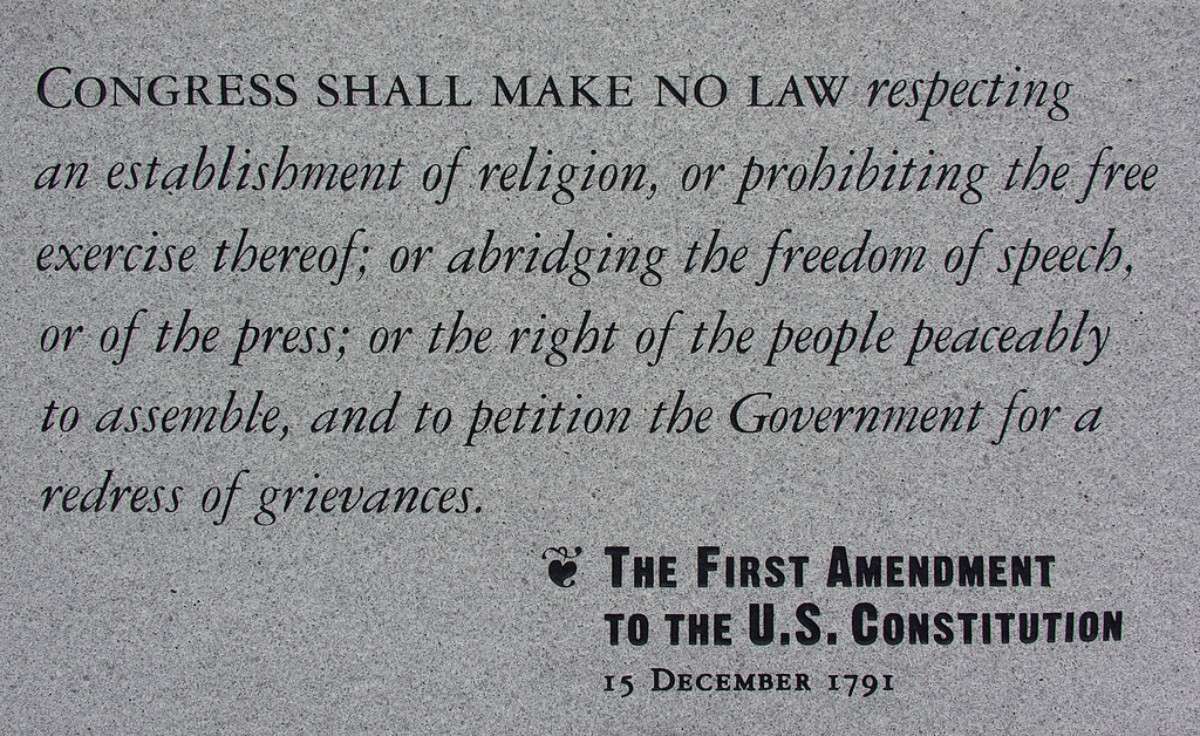MaverickNH
NES Member
Why do Brits care so much about our guns, gun policy and gun laws in the US? The UK news media and medical literature is awash in anti-gun rhetoric and research publications (often written by American authors). This quote from The Lancet was published August 2019 in parallel with the US journal Annals of Internal Medicine in the US "call to action." They rejected my Letter to the Editor as not of interest to their readers. See below for my letter text."
"The epicentre of nearly every mass shooting in the USA is a man. In the forensic unpacking, the shared characteristics of shooters—misogyny, alienation, and hate—emerge. Angry and socially disengaged, he finds solace in racist or extremist ideologies online. Rejected by females, he identifies as an involuntary celibate or “incel”, he demeans women and blames minorities, threatening violence. At some unknown point of personal crisis, he takes aim at infamy by destroying as many lives as he can in a moment. The staggering lopsidedness of male perpetrators in mass shootings behooves investigating the social mechanisms and influences that may interact with maladaptive beliefs, reinforce hegemonic masculinity, or make seductive the annihilation of oneself and others."

 pdf.sciencedirectassets.com
pdf.sciencedirectassets.com
*******************
In November of 2018, the National Rifle Association Tweeted “Someone should tell self-important anti-gun doctors to stay in their lane. Half of the articles in Annals of Internal Medicine are pushing for gun control. Most upsetting, however, the medical community seems to have consulted NO ONE but themselves."[1] Referring to several gun-related articles published in Annals of Internal Medicine[2], this Tweet drew sharp criticism from the medical community[3]. One might ask, what lane or lanes do doctors and the NRA refer to and who should occupy them?
Numerous health/medical organizations have issued position statements on guns, as cataloged by the Giffords advocacy organization.[4] Certainly, those who treat gunshot victims experience the tragedy firsthand, but do they have a unique claim to address issues related to gun policy? Several efforts to assemble and assess opinions of “gun experts” on gun policy and laws have been undertaken by an array of academics, organizations and the media, with respondents from science & medicine, economics, criminology, sociology, advocacy groups and politics & government.
In 2017, The Harvard Injury Control Research Center published on an on-going survey series where a broad range of research professionals in health/medicine, economics, criminology and sociology were surveyed. [5] The respondents included 46% health/medical, 32% criminology, 8% economics, 6% public policy and 9% other. The greatest discord between health/medical respondents and others on 15 firearms-related statements was seen on questions pertaining to gun safety education, guns and mental illness and suicide, and on concealed carry.
The Harvard surveys coupled addressing these 15 statements with self-assessment of how knowledgeable the respondents were and strength of evidence for each item. Finding average ratings for knowledgeability and strength of evidence across the series moderate at best (49% and 41% respectively), the authors suggest restriction of funding on firearms research may be a factor in the limited confidence of authors in their judgements on gun issues.
The statement ‘The carrying of firearms by regular citizens enhances public safety’ drew the highest response, with 90% Disagreeing, 50% judging the evidence to be strong and 60% self-assessing knowledgeability on the item. While perhaps an argument for more gun research, informed decision-making may be less certain when about half of experts are only moderately confident in evidence. In contrast, 97%+ of experts agree on human causes in Global Warming..
The 2018 Rand Corporation report “The Magnitude and Sources of Disagreement Among Gun Policy Experts”[6] surveyed 50 academic (53%) and 44 organizational (46%) and one political/governmental respondent. Rand categorized respondents as favoring More Restrictive gun policies (79/83%) or favoring More Permissive gun policies (16/17%). Creating a Gun Policy Explorer model based on surveyed opinions on 15 different gun policies and laws[7], the user can turn existing policies/laws on or off in 50 states to predict the net outcome on gun deaths. For example, turning on ‘Requiring a license to purchase or possess firearms or ammunition’, ‘Requiring firearm sales to be reported and recorded for Requiring firearm sales to be reported and recorded for Requiring firearm sales to be reported and recorded’ and ‘Requiring firearm sales to be reported and recorded’ yields outcomes of +5% more deaths by experts favoring More Permissive policies and -21% fewer deaths by experts favoring More Restrictive policies. Clearly, subgroups diverge markedly in expert opinion in this study.
The Rand report is critical of an earlier report by Lott and Mauser 2016,[8] wherein the authors observed that 74 economists and criminologists (35 and 39 respectively found potential efficacy of many gun policies to be low, and suggested the work was unrepresentative and in disagreement with other published surveys. In answer to this criticism, Berg, Lott and Mauser 2019 compared populations of health care professionals, economists and criminologists[9]. The experts surveyed were limited to academics that published at least one primary research study on gun policy.
While the Rand study included only six economists, this study surveyed pools of non-health/medical professionals [health/medical (50,42%), economists (32, 27%), criminologists (38, 31%)] on 33 gun policies relating to overall firearms homicides or mass shootings, and found “that Economists and to a lesser extent criminologists rank order the efficacy of gun control policies in the opposite order that public health researcher do.” Among health/medical researchers, the strongest rated efficacy measure of 5.5 (on a 1-10 scale) was assigned to universal background checks, with economists and criminologists rating this and other restrictive gun policies substantially lower.
Criminologists, economists and sociologists are not more or less qualified to inform on gun policy than health/medical professionals, yet the latter are referenced in news almost three times more frequently than the former.[10] One might speculate the media may bias towards coverage of health/medical professionals more often due to their attitudes supporting more restrictive gun policies.[11]
The NRA may have been wrong to tell doctors to “stay in their lane”. If NRA had, instead, told doctors to “not hog the road” they may have been more insightful in pointing out that the health/medical professions, among an array of researchers including economists, criminologists and sociologists, receive an unbalanced share of attention from the media on gun policy, as well as an unbalanced representation on some panels of gun experts.
Not only is the gun policy highway multi-lane, it also is bidirectional, with lanes moving in opposite directions.
"The epicentre of nearly every mass shooting in the USA is a man. In the forensic unpacking, the shared characteristics of shooters—misogyny, alienation, and hate—emerge. Angry and socially disengaged, he finds solace in racist or extremist ideologies online. Rejected by females, he identifies as an involuntary celibate or “incel”, he demeans women and blames minorities, threatening violence. At some unknown point of personal crisis, he takes aim at infamy by destroying as many lives as he can in a moment. The staggering lopsidedness of male perpetrators in mass shootings behooves investigating the social mechanisms and influences that may interact with maladaptive beliefs, reinforce hegemonic masculinity, or make seductive the annihilation of oneself and others."

Reaching critical mass on mass shootings
 pdf.sciencedirectassets.com
pdf.sciencedirectassets.com
*******************
In November of 2018, the National Rifle Association Tweeted “Someone should tell self-important anti-gun doctors to stay in their lane. Half of the articles in Annals of Internal Medicine are pushing for gun control. Most upsetting, however, the medical community seems to have consulted NO ONE but themselves."[1] Referring to several gun-related articles published in Annals of Internal Medicine[2], this Tweet drew sharp criticism from the medical community[3]. One might ask, what lane or lanes do doctors and the NRA refer to and who should occupy them?
Numerous health/medical organizations have issued position statements on guns, as cataloged by the Giffords advocacy organization.[4] Certainly, those who treat gunshot victims experience the tragedy firsthand, but do they have a unique claim to address issues related to gun policy? Several efforts to assemble and assess opinions of “gun experts” on gun policy and laws have been undertaken by an array of academics, organizations and the media, with respondents from science & medicine, economics, criminology, sociology, advocacy groups and politics & government.
In 2017, The Harvard Injury Control Research Center published on an on-going survey series where a broad range of research professionals in health/medicine, economics, criminology and sociology were surveyed. [5] The respondents included 46% health/medical, 32% criminology, 8% economics, 6% public policy and 9% other. The greatest discord between health/medical respondents and others on 15 firearms-related statements was seen on questions pertaining to gun safety education, guns and mental illness and suicide, and on concealed carry.
The Harvard surveys coupled addressing these 15 statements with self-assessment of how knowledgeable the respondents were and strength of evidence for each item. Finding average ratings for knowledgeability and strength of evidence across the series moderate at best (49% and 41% respectively), the authors suggest restriction of funding on firearms research may be a factor in the limited confidence of authors in their judgements on gun issues.
The statement ‘The carrying of firearms by regular citizens enhances public safety’ drew the highest response, with 90% Disagreeing, 50% judging the evidence to be strong and 60% self-assessing knowledgeability on the item. While perhaps an argument for more gun research, informed decision-making may be less certain when about half of experts are only moderately confident in evidence. In contrast, 97%+ of experts agree on human causes in Global Warming..
The 2018 Rand Corporation report “The Magnitude and Sources of Disagreement Among Gun Policy Experts”[6] surveyed 50 academic (53%) and 44 organizational (46%) and one political/governmental respondent. Rand categorized respondents as favoring More Restrictive gun policies (79/83%) or favoring More Permissive gun policies (16/17%). Creating a Gun Policy Explorer model based on surveyed opinions on 15 different gun policies and laws[7], the user can turn existing policies/laws on or off in 50 states to predict the net outcome on gun deaths. For example, turning on ‘Requiring a license to purchase or possess firearms or ammunition’, ‘Requiring firearm sales to be reported and recorded for Requiring firearm sales to be reported and recorded for Requiring firearm sales to be reported and recorded’ and ‘Requiring firearm sales to be reported and recorded’ yields outcomes of +5% more deaths by experts favoring More Permissive policies and -21% fewer deaths by experts favoring More Restrictive policies. Clearly, subgroups diverge markedly in expert opinion in this study.
The Rand report is critical of an earlier report by Lott and Mauser 2016,[8] wherein the authors observed that 74 economists and criminologists (35 and 39 respectively found potential efficacy of many gun policies to be low, and suggested the work was unrepresentative and in disagreement with other published surveys. In answer to this criticism, Berg, Lott and Mauser 2019 compared populations of health care professionals, economists and criminologists[9]. The experts surveyed were limited to academics that published at least one primary research study on gun policy.
While the Rand study included only six economists, this study surveyed pools of non-health/medical professionals [health/medical (50,42%), economists (32, 27%), criminologists (38, 31%)] on 33 gun policies relating to overall firearms homicides or mass shootings, and found “that Economists and to a lesser extent criminologists rank order the efficacy of gun control policies in the opposite order that public health researcher do.” Among health/medical researchers, the strongest rated efficacy measure of 5.5 (on a 1-10 scale) was assigned to universal background checks, with economists and criminologists rating this and other restrictive gun policies substantially lower.
Criminologists, economists and sociologists are not more or less qualified to inform on gun policy than health/medical professionals, yet the latter are referenced in news almost three times more frequently than the former.[10] One might speculate the media may bias towards coverage of health/medical professionals more often due to their attitudes supporting more restrictive gun policies.[11]
The NRA may have been wrong to tell doctors to “stay in their lane”. If NRA had, instead, told doctors to “not hog the road” they may have been more insightful in pointing out that the health/medical professions, among an array of researchers including economists, criminologists and sociologists, receive an unbalanced share of attention from the media on gun policy, as well as an unbalanced representation on some panels of gun experts.
Not only is the gun policy highway multi-lane, it also is bidirectional, with lanes moving in opposite directions.



![Grin [grin] [grin]](/xen/styles/default/xenforo/smilies.vb/041.gif)
